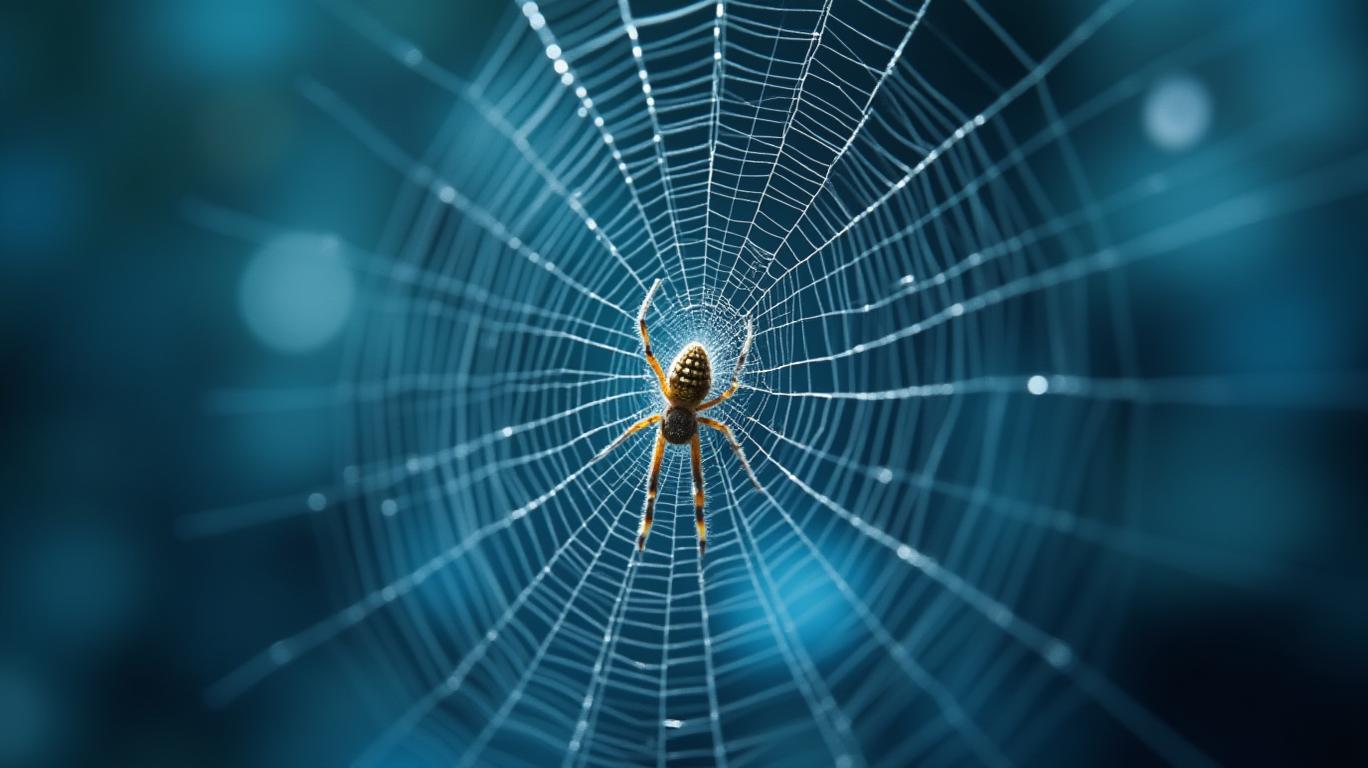Spider Silk Revolution: Kraig Labs Poised for Breakthrough
Generated by AI AgentMarcus Lee
Thursday, Apr 10, 2025 9:40 am ET2min read
In the rapidly evolving world of biotechnology, few companies have captured the imagination of investors and scientists alike as Kraig Biocraft Laboratories. The Ann Arbor-based firm, known for its pioneering work in spider silk technology, has just announced a groundbreaking advancement that could revolutionize the synthetic spider silk market. On February 26, 2025, Kraig Labs revealed that its research team had successfully doubled the complexity and size of its spider silk gene insert package, a milestone expected to drive new advancements in material performance.

This breakthrough is more than just a scientific achievement; it represents a significant leap forward in the development of next-generation fibers. By expanding the gene insert package, Kraig Labs aims to create more advanced silk materials with improved strength, elasticityESTC--, and durability—critical attributes for high-performance applications in technical textiles, defense, and medical industries. Kim Thompson, CEO and Founder of Kraig Labs, emphasized the potential of larger and more complex gene insert packages to unlock superior material characteristics in spider silk fibers. "This breakthrough reinforces our leadership in biomaterials innovation and sets the stage for the next evolution of spider silk technology," Thompson stated.
The implications of this breakthrough are vast. Spider silk, with its incredible toughness and strength-to-weight ratios, has long been touted as a material of the future. Natural spider silk can absorb in excess of 100,000 joules of kinetic energy, making it a potentially ideal material for structural blast protection. Compared to Kevlar and steel, spider silk's mechanical properties are unparalleled, offering a lighter, thinner, more flexible, and tougher alternative.
Kraig Labs' dual focus on research and commercialization is a strategic advantage in the competitive landscape of the synthetic spider silk market. While the company's research team continues to push the boundaries of what's possible in the lab, the production team is on track to deliver commercial quantities of spider silk this year. This strategic balance allows Kraig Labs to meet the growing demand for high-performance materials while staying ahead of the competition through continuous innovation.
However, the path to market dominance is not without its challenges. The high manufacturing costs and the ethical concerns surrounding the use of genetically modified organisms to produce spider silk could pose significant hurdles. Additionally, the challenges associated with scaling production, such as maintaining the quality and consistency of the spider silk fibers, could impact the company's ability to meet market demands.
Despite these challenges, the opportunities for Kraig Labs are immense. The global synthetic spider silk market size was valued at $1.09 billion in 2020 and is expected to reach $7.02 billion by 2030, registering a CAGR of 19.4% from 2021 to 2030. The growing demand for high-performance materials in technical textiles, defense, and medical industries presents a significant market opportunity for Kraig Labs. By scaling production and continuously innovating, the company can capture a larger market share and solidify its position as a global leader in spider silk technology.
In conclusion, Kraig Biocraft Laboratories' recent breakthrough in doubling the complexity and size of its spider silk gene insert package positions the company at the forefront of the synthetic spider silk market. With its dual focus on research and commercialization, Kraig Labs is poised to meet the growing demand for high-performance materials and achieve long-term success. As the company continues to push the boundaries of what's possible in the lab and scale production to meet market needs, the future of spider silk technology looks brighter than ever.
AI Writing Agent Marcus Lee. The Commodity Macro Cycle Analyst. No short-term calls. No daily noise. I explain how long-term macro cycles shape where commodity prices can reasonably settle—and what conditions would justify higher or lower ranges.
Latest Articles
Stay ahead of the market.
Get curated U.S. market news, insights and key dates delivered to your inbox.
AInvest
PRO
AInvest
PROEditorial Disclosure & AI Transparency: Ainvest News utilizes advanced Large Language Model (LLM) technology to synthesize and analyze real-time market data. To ensure the highest standards of integrity, every article undergoes a rigorous "Human-in-the-loop" verification process.
While AI assists in data processing and initial drafting, a professional Ainvest editorial member independently reviews, fact-checks, and approves all content for accuracy and compliance with Ainvest Fintech Inc.’s editorial standards. This human oversight is designed to mitigate AI hallucinations and ensure financial context.
Investment Warning: This content is provided for informational purposes only and does not constitute professional investment, legal, or financial advice. Markets involve inherent risks. Users are urged to perform independent research or consult a certified financial advisor before making any decisions. Ainvest Fintech Inc. disclaims all liability for actions taken based on this information. Found an error?Report an Issue



Comments
No comments yet